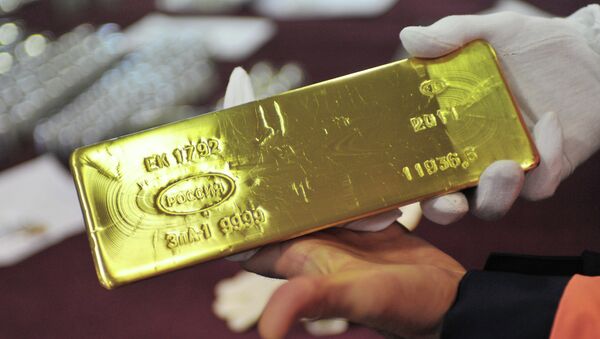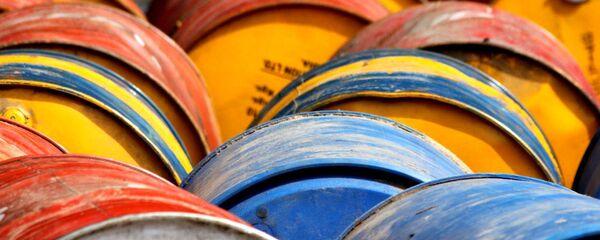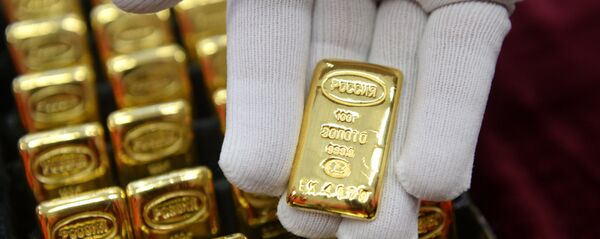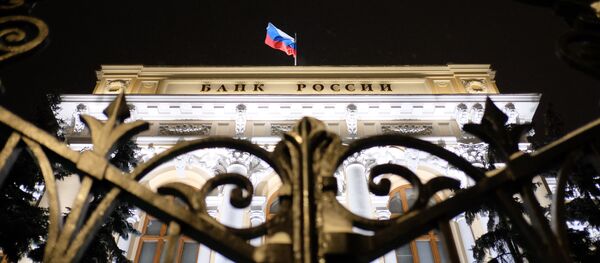Gold prices have surged since the beginning of 2016, amid oil price and financial market volatility, as holdings of the metal by investors more than reversed losses in December.
Gold holdings, as well as prices grew by record amounts, according to data compiled by Bloomberg, as stocks and commodities first crashed and then surged in January, amid increasing instability in China's economy and the Middle East's geopolitics. Russia's own holdings in the metal have remained constant in dollar terms while growing greatly in volume, creating speculation in the financial press about Russia's true intentions.
"People have become complacent about risks, whether it’s macroeconomic and geopolitical. What’s out of fashion may be coming back," George Milling-Stanley, head of gold investments at Boston based State Street Global Advisors, told Bloomberg.
Could Gold Actually Save Russia?
Russia's Central Bank spent $7.53 billion on gold over the course of 2015, compared to $6.69 billion the previous year. The number amounts to a quarter of the entire world's officially purchased gold in the first half of 2015, according to the World Gold Council. In terms of tonnage, Russia's gold purchases grew by 20 percent when comparing the first halves of 2014 and 2015.
The strangest part of the "Russian gold" conspiracy theories, however, was their attribution of the gold-buying to Russian President Vladimir Putin, who does not control the Central Bank's monetary policy.
In Russia itself, somewhat humorously, the gold-related conspiracy theories never gained ground because Russia's own leading conspiracy theories attribute the Central Bank's independence to control by the IMF and a "One World Government."
Financial observers inside Russia have noted that the increased gold purchasing may have been in part due to lobbying of the Central Bank by Russian gold manufacturers.
The amount is hardly enough to prop up the Russian ruble at its highs before the oil price crash, when Russian reserves hovered at over $500 billion, compared to $368 billion today, according to the Central Bank's statistics.





